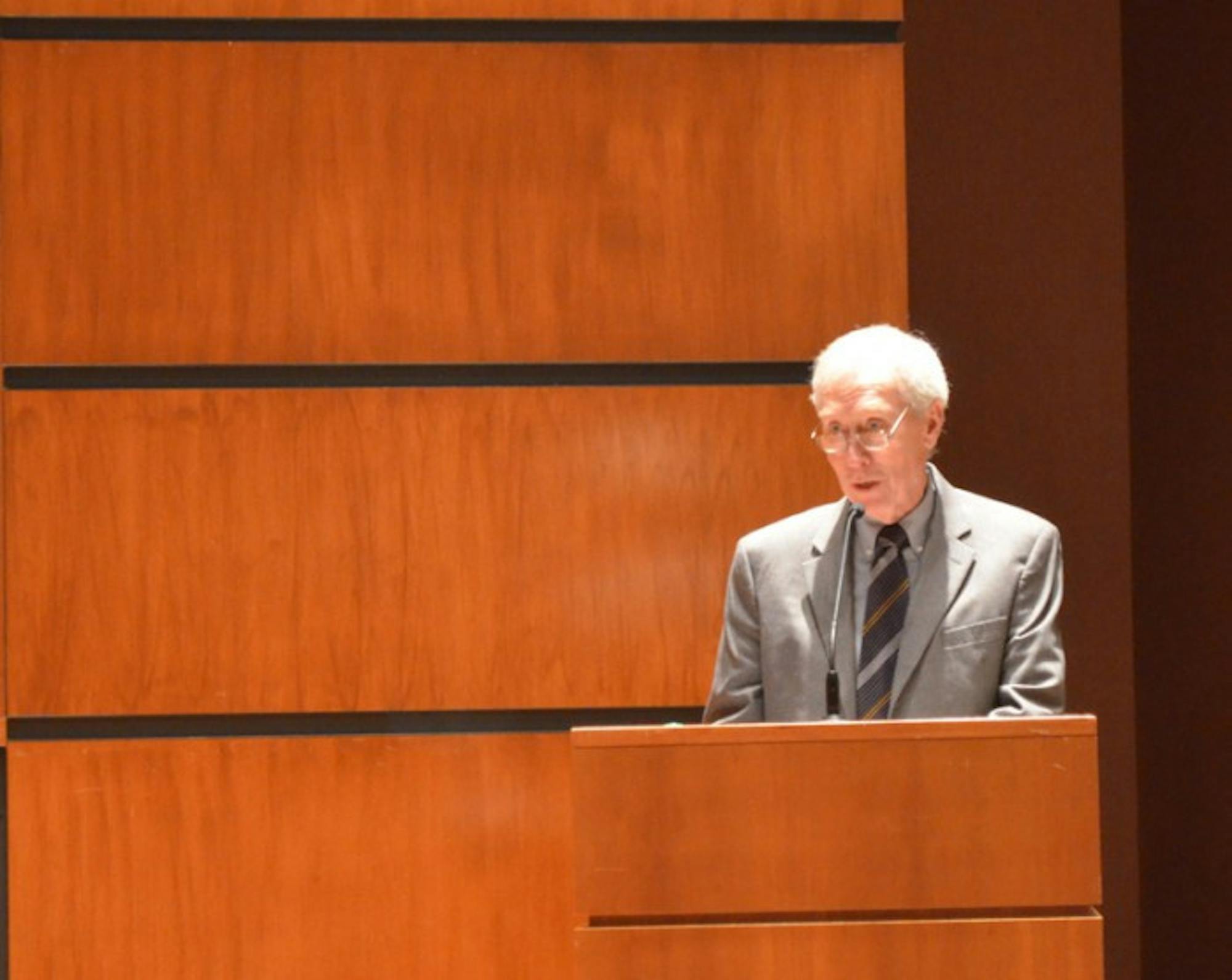Four Notre Dame Master in Business Administration (MBA) graduates convened in the Jordan Auditorium on Monday to talk about ethical decisions in their previous occupations as part of a Frank Cahill Lecture in Business Ethics.
During the first part of the event, each graduate shared cautionary tales about their previous employers, which remained unnamed.
Nicole O’Connor, who worked as a financial consultant for a hospital, said her experiences dealing with negativity in the office taught her to be cautious in a workplace environment.
“In the interview process [for my job], something felt a little off with the culture, but I kind of brushed it off since I got the opportunity to work in a hospital,” O’Connor said. “But it should have been a warning sign for me, looking back. Things were okay for me the first few months, but then I found that people in the office weren’t supportive and people talked about each other behind their back. … Each day I went home, I had to check to make sure that I stayed true to myself.”
Chris Francica, who worked in marketing in the telecommunications industry, described how his employer handled a controversy over a potentially disastrous false-marketing incident.
Steven Danford, who worked as an investment banker for a small bank, said a dirty stock deal by a senior banker threatened the existence of his bank.
“Our compliance department determined that [the stock deal] was so bad that we had to fire the guy because there would have been ramifications for our firm,” Danford said. “So we did. As he came back, he sued our firm ... but our firm was small. We didn’t have the bankroll to fund a year-long lawsuit. … So, basically the firm I worked with is closing up soon.”
George Hayes, who worked as an investor for a firm, said he learned how to deal with a workplace that encouraged intentional gross inefficiency, as he and his colleagues were paid on an hourly rather than a fixed-fee basis.
“You will get pressure as a younger staff person early in [your] career saying, ‘Hey, you really got to watch the hours at work,’” Danford said. “They will ... push you in a direction ... to try to make sure you don’t do what you’re supposed to, even though you’re told the second you walk through the door to bill every hour you work since that’s what’s best for the firm and that’s what’s best for the client.”
Following the discussion, Southwest Airlines was awarded the Rev. Theodore M. Hesburgh, C.S.C. Award for ethically and socially sustainable business practices. Notre Dame Alumnus Christine Ortega received the award of behalf of Southwest Airlines.
“Our mission statement says nothing about the airline business, not one word about flying airplanes,” said Christine. “It talks about delivering the best kind of customer service that you can deliver. … We talk about Southwest Airlines as people; we talk about being in the customer service business. That is our cornerstone.”













